NAACL Officers 2016
Officers
| Chair | Emily M. Bender | University of Washington | 2016-2017 |
| Secretary | Colin Cherry | National Research Council Canada | 2016-2017 |
| Treasurer | Joel Tetreault | Yahoo Labs | 2015-2016 |
| Past Chair | Hal Daumé III | University of Maryland | 2014-2015 |
Executive Board
| Board Member | Matt Post | Johns Hopkins University | 2015-2016 |
| Board Member | Fei Xia | University of Washington | 2015-2016 |
| Board Member | Marie-Catherine de Marneffe | The Ohio State University | 2016-2017 |
| Board Member | Julia Hockenmaier | University of Illinois | 2016-2017 |
Ex-Officio Board Members
| Graeme Hirst | University of Toronto | ACL Treasurer |
Nominating Committee
- Dan Gildea (chair)
- Chris Callison-Burch
- David Chiang
- Mona Diab
- Katrin Erk
- Julia Hirschberg
- Chris Manning
- Anoop Sarkar
Chair (2016-2017) | Emily M. Bender | University of Washington
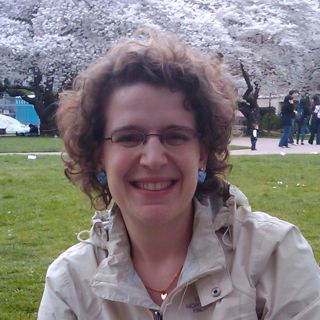
Bio
Emily M. Bender is a Professor of Linguistics and an Adjunct Professor of Computer Science and Engineering at the University of Washington, where she has been a member of the faculty since 2003. Her primary research interests are in multilingual grammar engineering and deep linguistic processing. She is the Linguistic Society of America’s delegate to the ACL and the faculty director of UW’s professional MS in Computational Linguistics.
Candidacy Statement
I believe that science flourishes to the extent that we foster reproducibility, the open exchange of ideas, inclusivity and communication across and within disciplines. As NAACL Chair I would work to continue and expand on NAACL’s excellent track record in these areas while also ensuring the organization continues to run smoothly.
Secretary (2016-2017) | Colin Cherry | National Research Council Canada
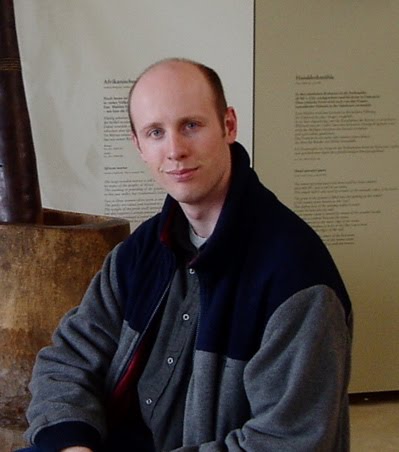
Bio
Colin Cherry is a Senior Research Officer at the National Research Council Canada. Previously, he was a Researcher at Microsoft Research. He received his Ph.D. in Computing Science from the University of Alberta. His primary research area is machine translation, but he has also been known to venture into parsing, morphology and information extraction. He is currently on the editorial board of Computational Linguistics, and has recently served as workshop co-chair for HLT-NAACL 2012, publications co-chair for HLT-NAACL 2013, and machine translation area co-chair for ACL 2014.
Candidacy Statement
The NAACL Secretary is responsible for helping to organize meetings, elections and general communications. This includes our presence on the web and on social media. The NAACL webpage has improved dramatically over the past few years, and my priority would be to keep it up-to-date and to make only small improvements; for example, by maintaining links to archives of previous conference’s webpages. In terms of social media, the NAACL twitter account has many followers, but only tweets a few times a year. I would like to draw up a policy describing the purpose of the NAACL’s social media accounts, so we can use them effectively and consistently to boost the signal for conferences, sponsored events, and NAACL-relevant news. As a board member, I look forward to participating in ongoing discussions on improving the conference reviewing process. I support current initiatives to encourage quality reviewing, and I like that we are carefully questioning the utility of the author response period. I am excited by our efforts to promote the study of language processing among students and developing regions, and I would be glad to continue these efforts, with a focus on making sure they receive sufficient attention.
Treasurer (2015-2016) | Joel Tetreault | Yahoo Labs

Bio
Joel Tetreault is a Senior Research Scientist at Yahoo Labs in NYC. Previously he was Senior Principal Manager at Nuance Communications and Senior Managing Research Scientist at Educational Testing Service. His research interests include discourse processing, grammatical error detection, automated essay scoring, and dialogue systems. He received his PhD at the University of Rochester and was a postdoctoral researcher at the University of Pittsburgh before joining ETS. He is the current NAACL Treasurer, served as Area Chair for NAACL 2010, Session Chairs for NAACL/ACL 2010-2013, Exhibits Chair for NAACL 2012, co-organizes the Building Educational Applications workshop since 2008, and maintains the primary conference calendar for our community (since 2004).
Candidacy Statement
The NAACL Treasurer monitors and reports on the finances of the organization, provides feedback to the NAACL board on which practices have been successful and how best to use our budget for the future. Over the last two years as NAACL Treasurer, my primary focus was to rebuild our bank account. A healthy bank account is important for two reasons. First, it allows us to fund important computational linguistics activities such as North American Computational Linguistics Olympiad (NACLO) and NLP conferences in emerging regions such as Central and South America. Activities such as these are likely to have a long-term effect on the growth of our field. Second, it allows us to better absorb any potential losses from a future NAACL conference. I worked with the rest of the NAACL board, Priscilla Rasmussen, and the previous treasurer, Chris Manning, to implement a sound strategy to rebuild our bank account. While our state of affairs has improved, there is still much work still to be done. If elected, I want to 1) continue with a conservative plan for our spending, 2) be aggressive and creative about seeking sponsorship and 3) minimize the risk of a conference operating at a loss.
Past Chair (2014-2015) | Hal Daumé III | University of Maryland
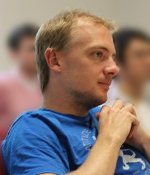
Bio
Hal Daumé III is or was: an Associate Professor at UMD in CS and Linguistics; program co-chair of NAACL 2013; NAACL exec member; ed board member for CL, JAIR and MLJ; author of the NLPers blog; assistant professor at U of Utah; grad student at ISI; intern at Microsoft; sponsorship chair for NAACL; sponsorship and pubs chair for ICML; publicity chair for ACL and ICML; avid workshop organizer and tutorial giver; amazed you read this far; former co-director of the UMD CLIP lab.
Candidacy Statement
NAACL as a conference is great, and we can improve: reviewing, physical and virtual socialization, and memory of the past. NAACL as an organization is also fantastic, and we can take an active leadership role in promoting NLP/CL as a field within the Americas.
Board Member (2015-2016) | Matt Post | Johns Hopkins University
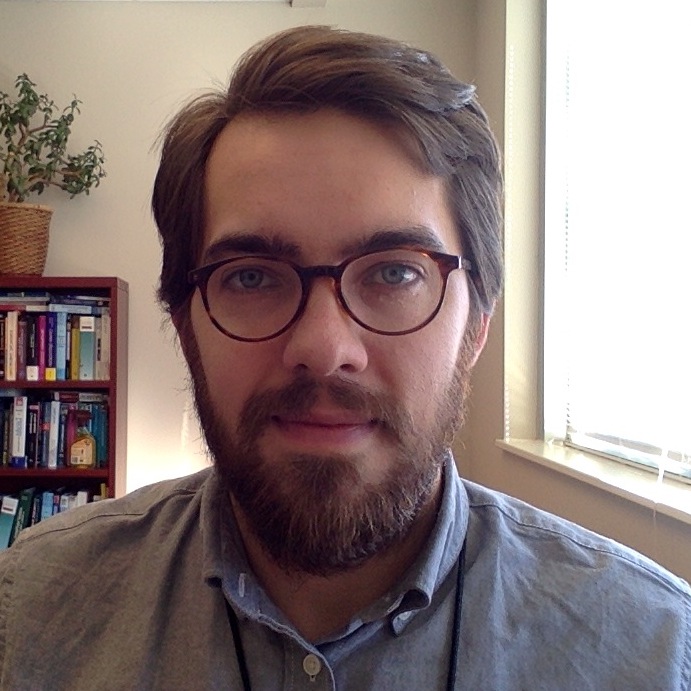
Bio
Matt Post is a Senior Research Scientist at the Human Language Technology Center of Excellence (HLTCOE) at Johns Hopkins University, where he works on machine translation. His research interests include machine translation, language modeling, and grammaticality, with syntactic approaches to these tasks serving as a common underlying theme. He received his Ph.D. from the University of Rochester. He has co-organized the Workshop on Statistical Machine Translation for the past three years, and is serving as the NAACL 2013 & 2015 publications co-chair.
Candidacy Statement
My main interest as a member of the NAACL executive committee is to direct some attention to (1) increasing community efforts towards reproducibility of research and (2) improving the conference management process.
Reproducibility is the cornerstone of good science, and yet it receives far less attention than primary research contributions. This imbalance has contributed to very low reproducibility rates reported across scientific fields, and undermines scientific pursuits in a number of ways. Computer scientists are well positioned to make reproducibility easy, but doing so still requires extra work on the part of both the reproducer and the reproduce, which is often unrewarded. While our community has an established habit of sharing code and data, these efforts fall far short of what they should be. As part of keeping our house in order, NAACL should find ways to reward efforts in the area of reproducibility.
A point of distinction for our research community is the extensive body of code used to produce our annual proceedings and conference manuals. This has been built up over the years and yields useful, high-quality proceedings. While improvements are made each year to this codebase and the conference management system that surrounds it (including the recent unified login system for reviewers), there remains a lot of relearning, trial-and-error, redundant effort, and subsequent frustration on the part of each year’s conference organizers, reviewers, and submitters. Softconf has been very helpful in this process so far, but there is much more that could be done were someone to give it some time, money, and attention.
Board Member (2015-2016) | Fei Xia | University of Washington
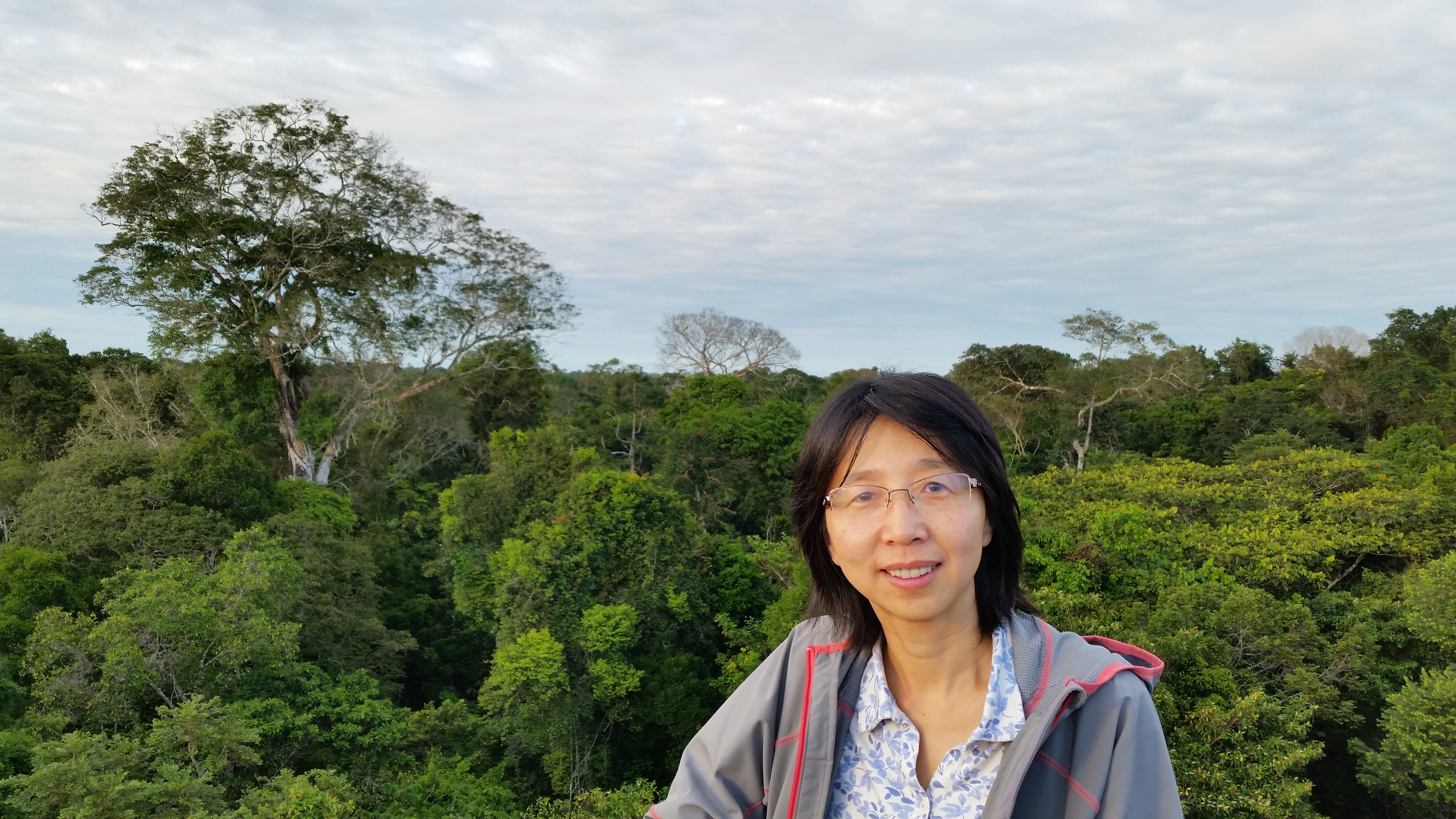
Bio
Fei Xia is an Associate Professor at the Linguistics Department at the University of Washington (UW) and an adjunct faculty at the Department of Biomedical Informatics and Medical Education at the UW Medical School. She received her PhD from the University of Pennsylvania in 2001. After graduation, she worked at the IBM T. J. Watson Research Center before joining UW in 2005. Fei co-chaired one conference and eight workshops, and was on the organizing committees of five other NLP conferences. She is also an editorial board member of several journals (e.g., CL, LRE and TALIP) and an officer of two ACL Special Interest Groups (SIGANN and SIGHAN). Her current research focuses on treebank development, bio-NLP, and creating resources and NLP systems for resource-poor languages.
Candidacy Statement
One issue that requires more discussion and clarification is about the service region of NAACL. According to the current NAACL Constitution, NAACL will serve “all members of the Association who reside in North America. In addition, until regional chapters are created for the Association members in the adjacent regions of Central America and South America, the Chapter will serve them as well.” As far as I know, there have never been any major ACL conferences held in Latin America, so it is unlikely that region chapters of ACL would be created for that region in the near future. Given this, I feel that it is important to clarify whether NAACL intends to serve that region for a long term. If the answer is affirmative, it might be good to change the acronym “NAACL” (as suggested by David Chiang last year) to indicate that the organization is not only for North America; the NAACL constitution has to be revised accordingly as well. In addition, as a first step to promote NLP research in that region, we should seriously consider holding an NAACL conference or sponsoring a regional conference in Latin America in the near future.
Another area that I feel passionate about is to promote more collaboration between NLP researchers and linguists. In the past two decades, with the advancement of machine learning methods and the availability of data resources such as treebanks and parallel corpora, data-driven approaches to NLP have made significant progress. The success of such data-driven approaches has cast doubt on the relevance of linguistics to NLP. Conversely, NLP techniques are rarely used to help linguistics studies. I believe that there is much room to expand the involvement of linguistics in NLP, and likewise, NLP in linguistics, and that the cross-pollination of ideas between the disciplines can greatly benefit both fields. Lori Levin, William Lewis, and I organized the ACL 2010 workshop NLP and Linguistics: Finding the Common Ground. The workshop was sponsored by NSF and drew wide attendance from both NLP and linguistics fields. I hope that NAACL will support effort in this area.
Besides general linguistics, there are many other disciplines that would benefit from NLP, such as sociolinguistics, psycholinguistics, social sciences, bioinformatics, and even business schools. For instance, recently there have many studies on using NLP techniques to analyze political blogs, hospital notes, or business reports. There are many ways that NAACL can promote interdisciplinary studies; for instance, we can add a new research area on interdisciplinary studies for NAACL paper submission; we can also work with funding agencies and industry to seek their support in funding such research.
Board Member (2016-2017) | Marie-Catherine de Marneffe | The Ohio State University
Bio
Marie-Catherine de Marneffe is an Assistant Professor in Linguistics at The Ohio State University. She received her PhD from Stanford University in December 2012 under the supervision of Christopher D. Manning. Her research focuses on computational pragmatics. She is one of the principal developers of the Stanford dependencies and the Universal dependencies representations. She helped organize the shared task on Named-Entity recognition in Twitter at the ACL 2015 workshop on Noisy User-generated Text and is serving as an area chair for ACL 2016.
Candidacy Statement
In recent years, two focus areas of the NAACL board were the improvement of the reviewing process, both from the reviewers’ and authors’ perspective, and a better integration between different disciplines. I will aim to continue the preceding efforts made in these directions. High quality reviews are a mandatory component of a successful and interesting conference. Incentives to ensure high quality reviewing have been put in place, but some of us have questioned how much author responses are taken into consideration, and this is something that can be concretely improved upon. Further I want to make sure our field stays true to its interdisciplinary nature, and stays grounded in the linguistics part of “computational linguistics”. NAACL should become a better illustration of how efforts in theoretical linguistics and NLP can complement each other, especially now that the field of Linguistics per se is becoming more and more quantitative. I will work to make this happen.
Board Member (2016-2017) | Julia Hockenmaier | University of Illinois
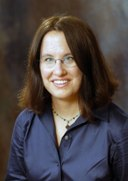
Bio
Julia Hockenmaier is an Associate Professor of Computer Science at the University of Illinois at Urbana-Champaign. She works on statistical parsing and grammar induction with expressive grammar formalisms, as well as on models that use NLP and computer vision to associate images with sentences that describe what is depicted in them. She has also worked on the application of parsing algorithms to protein folding. Julia received her PhD from the University of Edinburgh under the supervision of Mark Steedman, and did a postdoc with Aravind Joshi at the University of Pennsylvania. She is the SIGNLL secretary, co-chaired CoNLL 2013, was a member of the editorial boards of Computational Linguistics, and the ACM Transactions on Asian Language Processing, and is on the board of the Journal of Artificial Intelligence Research. She was on the Senior Program Committee of NAACL-HLT and EMNLP 2015, and is a regular member of the program committee for the various ACL conferences. She has participated in ACL/EACL/NAACL student research workshops as author, student organizer and faculty adviser, and was a member of the first EACL student board.
Candidacy Statement
As a member of the NAACL Executive Board, I would like to work towards securing the status of our conferences and workshops as an important place to present research, exchange ideas, and catch up with colleagues. Physical meetings are essential for the vitality of our community. But the format of the main conference needs to change to accommodate the growth of the field. Currently, only some papers get presented as long talks, and even the poster sessions are getting increasingly crowded. This is unfair, and clearly unsustainable. At CoNLL-2013, we gave every paper a 15-minute slot (and a poster). Despite some initial doubts, this worked very well. With three parallel sessions, we could accommodate up to 180 15-minute slots in a three day conference (that works out to five hours of talks per day, and would still leave time for invited speakers, and poster sessions in the evenings).
As our membership and conference attendance increase, our workshops have to play an increasingly important role. I would like to strengthen the role of both the Student Research Workshop and our regular workshops. The SRW needs to be known as a venue that promotes excellence in graduate research, and that fosters a sense of community among the next generation of CL/NLP researchers. Similar to e.g. the NIPS workshops, we should also encourage regular workshops that consist mainly of invited talks and discussions. There is no incentive to publish one’s best work at a workshop, but it can be really productive and stimulating to get a group of people who are all working on similar topics in the same room for a day.
As a long term goal, I would also like to make sure that NAACL has a voice in public discussions that concern, and may shape, the future of computer science research and education in North America. I believe that (NA)ACL should consider joining the Computing Research Association (CRA), which would allow us to participate in such discussions, along with other professional societies such as AAAI, ACM, or SIAM.